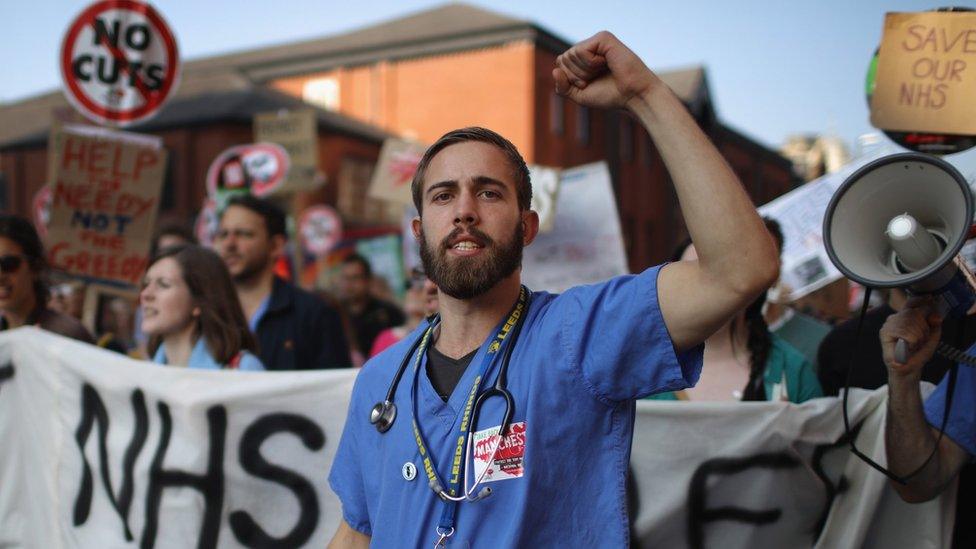Junior doctors' strike: What patients need to know
- Published
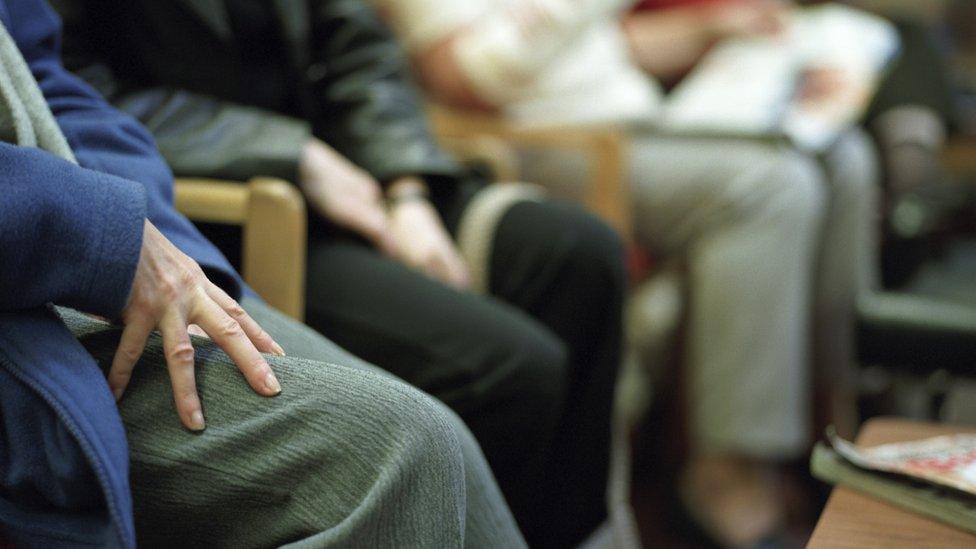
Junior doctors in England plan to take industrial action from 08:00 to 17:00 BST on Tuesday 26 and Wednesday 27 April.
We have already had four strikes this year, but for the first time in the history of the NHS this will be an all-out strike, involving juniors walking out of Accident and Emergency departments and urgent maternity services, for example.
The NHS says it is working hard to ensure as few patients as possible are affected but what does this mean for people who need these services?
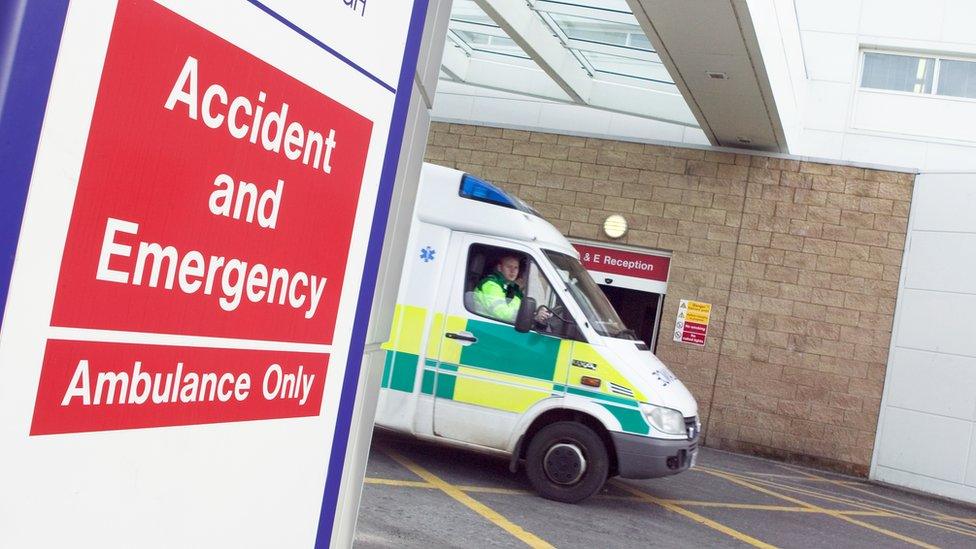

In an emergency
You should still dial 999 for an ambulance or go straight to A&E if you have a serious or life-threatening condition. These services will continue to run throughout the strike but with other staff covering junior doctor roles.
Junior doctors normally play an integral part in A&E departments and across intensive care and emergency maternity services.
They are often the first doctors who patients see, the ones who take a detailed account of the problem and request blood tests and other investigations.
Depending on their seniority, they may also be involved in treating, discharging and operating on patients.
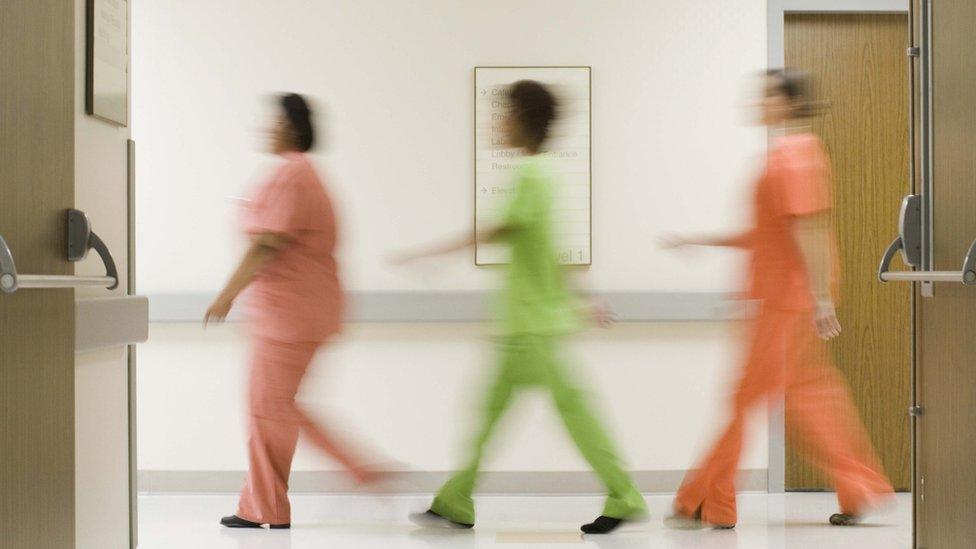
Consultants and staff grade doctors (who are not on junior doctor training programmes) will be drafted in to cover these duties.
Nurses and other healthcare professionals will all be at work as usual and can help with many tasks.
It is not yet clear what impact the walkout will have on queues and waiting times but doctors insist patient safety will come first.

To access urgent medical help
You can still call NHS 111, external, visit your GP or see an out-of-hours doctor at an urgent care centre or walk-in centre.
They will be able to offer you advice and direct you to the services and care you need.
NHS 111 has increased the number of people taking calls.
But NHS Choices says these services may be busy during the strike so anyone with chronic conditions, for example, should make sure they have stocked up on routine prescriptions ahead of time.

Visiting a GP
GPs may experience greater demand than normal, so it is best to contact your GP early if you need advice or an appointment, according to the NHS Choices website.
The strike involves junior doctors - not fully fledged GPs. But some junior doctors will be trainee GPs.
Surgeries should still be open to see patients as usual and extra GP appointments will be available during the strikes, but check with your own practice to see what local services are being offered.
A few routine appointments may be cancelled on strike days. You will have been notified if this applies to you.

Cancelled operations and clinics
With consultants being drafted in who may have otherwise been staffing outpatient clinics and non-urgent operating theatres, some hospital appointments, non-emergency surgery or other non-emergency work will be cancelled. You should be informed if this will affect you.
You can also check your hospital website for additional advice.
If you have an appointment on one of the strike days and are concerned, you should speak with your hospital.
Patients who are already in hospital will continue to receive care with senior staff covering for junior doctors.
And junior doctors will be back in hospital as normal at 17:00 on both days.
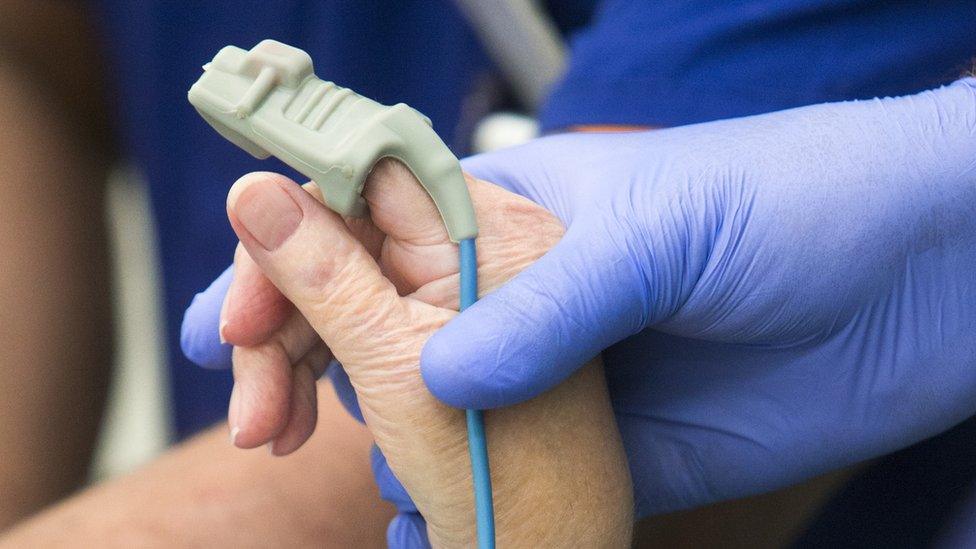
Pharmacies and dentists
The strikes do not include any of these healthcare professionals. Services should run as normal.
Opticians, midwives, health visitors can also be contacted for advice.

Hospital trusts
NHS hospital trusts are ultimately responsible for ensuring patients receive the treatment they need, and it will fall to them to put in place appropriate arrangements to ensure continuity of care and patient safety in the event of any industrial action.
NHS ambulance trusts have said they are prepared for the strikes too.
There are also plans to call doctors back in the event of major unpredictable incidents. NHS England would speak to the doctors' union in this case.
There are more than 40,000 consultants and 10,000 staff doctors, not to mention locums, who could be brought in.
There are also 17,000 junior doctors who are not BMA members.
An overwhelming majority of the 37,700 junior doctors balloted about the industrial action voted in favour of the all-out strike.

Services in Scotland, Wales and Northern Ireland
The dispute over the junior doctor contract is an England-only issue.
Doctors in Scotland, Wales and Northern Ireland will not be taking part in the strike.
- Published10 April 2016
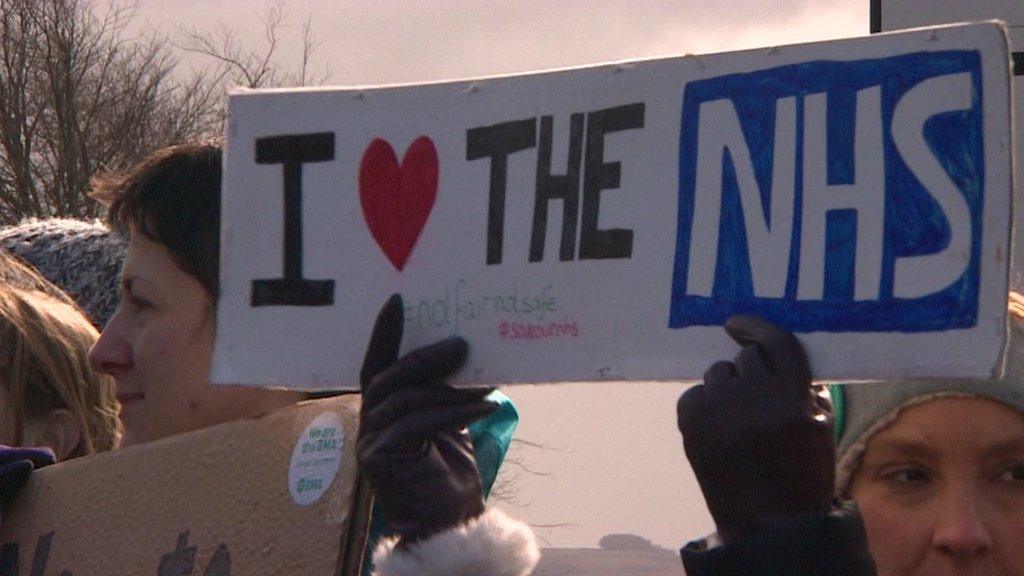
- Published8 April 2016
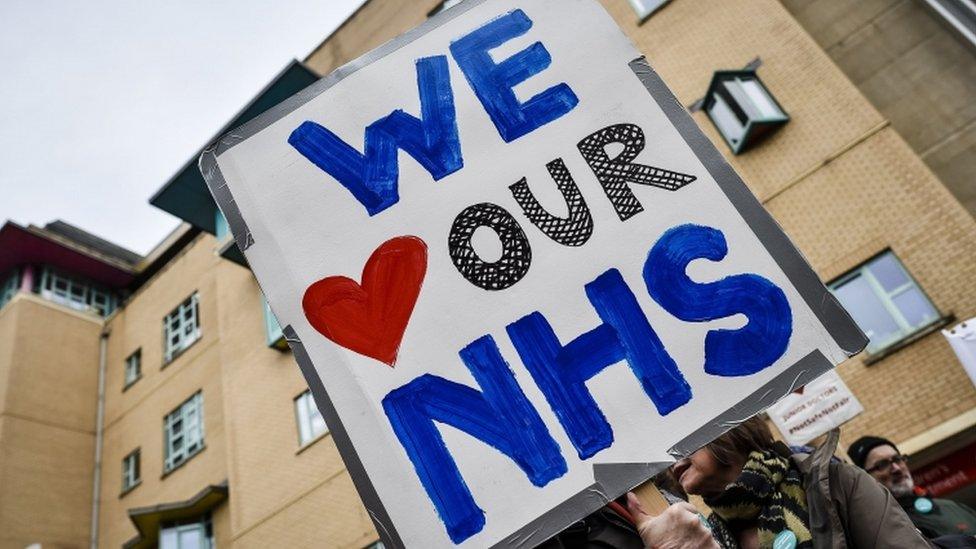
- Published7 April 2016
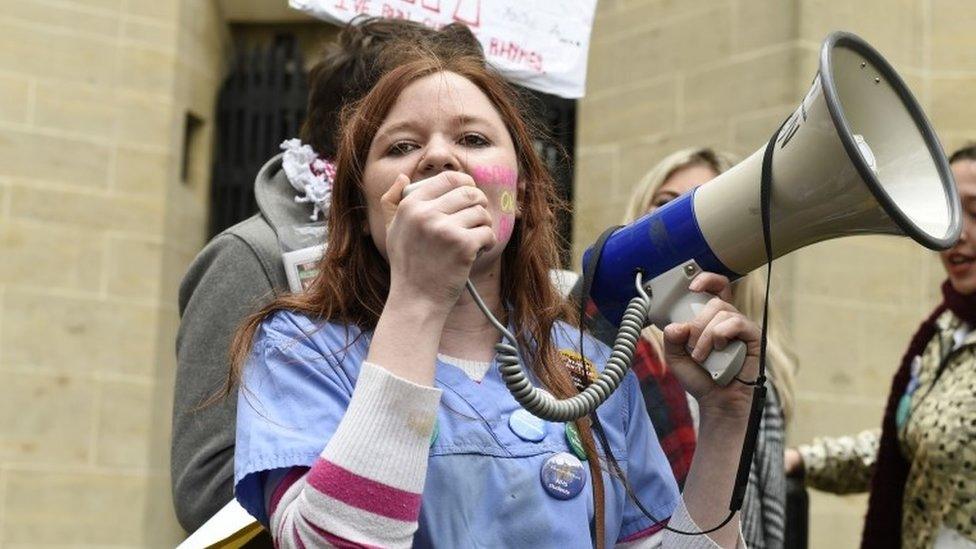
- Published6 April 2016
